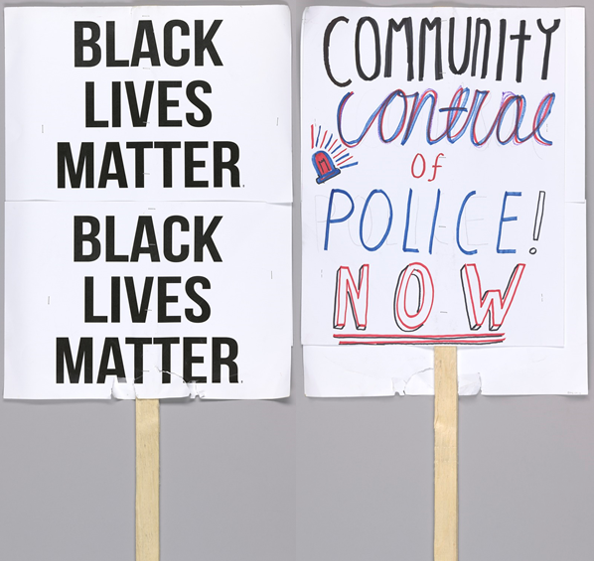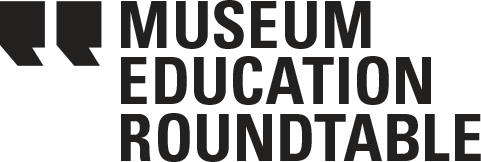MER Responds

The Museum Education Roundtable stands alongside those protesting violence against Black people in Minneapolis and around the country. Museum educators are bridges to and producers of cultural knowledge. We care for our communities intellectually but also emotionally, socially, and physically. As such, we have a responsibility to address structural injustice, oppression, racism, and abuses of power. Museums are not neutral, and neither are those who work in these privileged institutions.
We are angered by and mourn the killing of Breonna Taylor, George Floyd and countless others. We stand with those condemning the violence against and ongoing oppression of Black people in the United States. Our thoughts, words, and actions are with anyone organizing to dismantle systems of oppression.
These are only the most recent instances emerging from centuries of violent, structural racism in the United States. To end this cycle of injustice, we all must come together to recognize the insidious nature of white supremacy and the ways it has infiltrated every aspect of our lives, including and especially our cultural institutions.
We encourage our members and readers to take action and have compiled the following resources for folks seeking an entry point. As a Board, and within a museum field, that is predominately white, we must center our Black, Indigenous, and racialized colleagues, partners, and visitors. We have privilege inherent to aspects of our identities and power in our position within the cultural landscape.
Here’s what we can do right now:
- Donate to local groups on the ground pushing for transformative justice like Reclaim the Block, Black Visions Collective and the North Star Health Collective;
- Call legislators;
- Sign this petition from Color of Change;
- Register to vote and encourage others to do the same.
Here’s what we can do within the museum field:
- Audit your work, your privilege, and your sphere of influence; consider where you can be most useful;
- Integrate antiracist and culturally responsive pedagogy into your practice; reading, or rereading, Pedagogy of the Oppressed by Paulo Freire or Culturally Responsive Teaching by Geneva Gay;
- Read “Activating Diversity and Inclusion: A Blueprint for Museum Educators as Allies and Change Makers” by Wendy Ng, Syrus Marcus Ware, and Alyssa Greenberg from the JME issue 42.2;
- Intervene during acts of injustice against people of color, from microaggressions to violence;
- Download the Museums as Site for Social Action Readiness Assessment;
- Complete the Asian American Racial Justice Toolkit;
- Understand intersectionality and apply that lens to your work;
- Recognize the link between ableism and racism; create exhibits, programs and exhibits that prioritize access for all;
- Partner with local racial and social justice groups in your community and pay them for their expertise;
- Read the Social Justice & Museums Resource List curated by organizer and art historian La Tanya Autry;
- Visit Adrianne Russell’s #MuseumsRespondToFerguson resource list; Mike Murawski expanded on this work to include resources for teaching about Ferguson.
For museum workers who are, or want to become allies, advocates, accomplices:
- Recognize how this violence affects Black, Indigenous and colleagues of color deeply and differently than white colleagues;
- Make space for Black friends, colleagues, and family to grieve and mourn; center them and their experiences rather than your own;
- Talk with kids, students, coworkers, family, and friends about race;
- Join or start reading and discussion groups like Building Antiracist White Educators, centered around racial equity
- Support BIPOC organizations in a sustainable way, not just during crises; send funds to thought leaders and changemakers that you learn from using platforms like Venmo or Paypal; become a Patreon member of podcasts that challenge your bias;
- Confront your own bias and unearth the ways that white supremacy has benefited you; then start dismantling it.
Resources for white people confronting anti-black racism:
- White Fragility by Robin J. DeAngelo, and other selected titles from this booklist for white readers from Atlanta’s Charis Books
- Me and White Supremacy by Layla F. Saad
- How to Be an Antiracist by Ibram X. Kendi
- You Can’t Teach What You Don’t Know by Gary R. Howard, edited by James A. Banks
We offer MER’s platform to amplify the voices of museum colleagues of color, and uplift liberatory work in our field. If you have thoughts, blog posts, or resources to share with the museum education field, we welcome you to do so in this space. We can be reached at [email protected].
We acknowledge that much of the framework for organizing how museums can and should respond to injustice has been the labor of people of color, in particular Black women. We thank Adrianne Russell and Aleia Brown (#MuseumsRespondToFerguson); La Tanya Autry and Mike Murawski (#MuseumsAreNotNeutral); and Kimberlé Williams Crenshaw and Andrea J. Ritchie (#SayHerName); Patrisse Khan-Cullors, Alicia Garza, and Opal Tometi (#BlackLivesMatter); and Porchia Moore and nikhil trivedi (Visitors of Color).
In solidarity,
The Museum Education Roundtable Board of Directors

